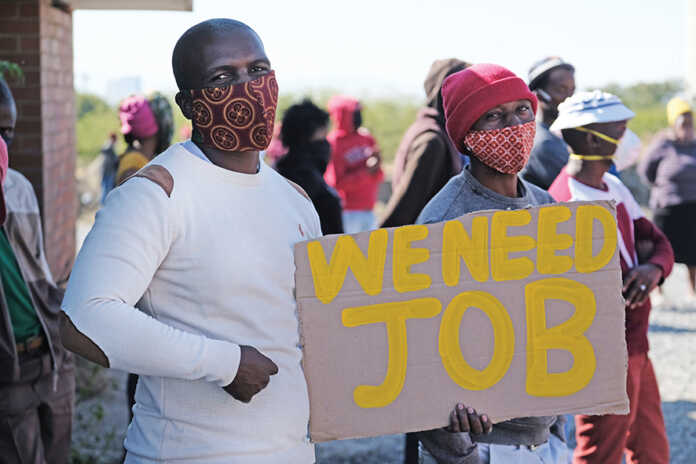By Busi Kheswa
Levels of unemployment continue to engulf our thoughts, more so as we believe sustainable livelihoods programmes will bring about pride – and restore some level of dignity.
With Gauteng being the most populous province in South Africa, this number will be quite significant due to a number of reasons, including our fellow young people migrating from their home provinces in search of better opportunities in the province believed to be more viable for economic opportunities.
According to Quarterly Labour Force Survey, the youth unemployment rate, when measuring job seekers between 15 and 24 years old, notes that it rose to 62.1% in the first quarter of 2023, the highest in a year, from 61% in the previous three-month period. Gauteng accounts for the most.
The Gauteng provincial government launched a programme called Tshepo 1 Million with the aim to ease pressure from youth in the province. Various departments needed to contribute through a number of programmes to ensure this was realised. As part of contributing to the programme, the Gauteng department of social development (GDSD) is implementing the Welfare-to-Work Programme (W2WP)
The W2WP is one of the offspring of the Tshepo 1-Million programme, which involves taking welfare recipients to the work environment provided for by various non-profit organisations (NPOs). This programme includes the recruitment and selection, assessment, placement and on-job development, case management, training and developmental education, support services and job retention services. It helps prepare participants for the job market and provides them with work experience to find and keep jobs.
Initially, the W2WP was developed to support young women who were recipients of child support grants and foster care grants, but was further expanded to assist exiting foster care beneficiaries, victims of gender-based violence, recovering substance abuse patients, women exiting shelters of victim empowerment programmes, beneficiaries exiting child justice system, and other beneficiaries to transit from welfare into the world of self-sustenance.
The programme incubates individuals for a period of not more than three years, and based on their assessment and educational profile, individuals are linked to education and training programmes aimed at ensuring that they can move themselves out of the social security system.
Beneficiaries are selected based on factors, such as:
• The age cohort (between 18 and 25 years old)
• Social status factor (from poor backgrounds – based on household profiling from GDSD
• Passed matric
• Participants who are willing to, and are ready to work
• Participants willing to, and are ready to look and take a post matric qualification/course
Through this programme, the GDSD provides accredited skills training programmes through partnerships with accredited training partners in the field of hospitality, fashion design, real estate, photography, beauty therapy, and hair dressing, etc.
This is done through partnering with various NPOs, who train and offer unit standards and/or qualifications that fall within the primary focus area of the Education and Training Quality Assurance body of the relevant Sector Education and Training Authority (Seta) or professional body.
The training focuses on skills development, wherein beneficiaries are taken through various accredited skills development programmes.
There is also job placement, where participants are linked to job opportunities within the network of potential employers, and enterprise development, which links participants to self-employment opportunities.
Last month, 536 youngsters graduated from this programme having been trained in hair, beauty and fashion design.
One beneficiary, 30-year-old Thando Femmers, who graduated in fashion design through the Sun Goddess Foundation, said he was happy to break the cycle of poverty. He now owns a high fashion brand.
“I want to empower people in my community who are hopeless. I was once a member of the community with no aspirations, but I thank Sun Goddess Foundation and the Gauteng department of social development for giving us an opportunity to live a life with purpose”.
Even though these interventions seem scanty given the magnitude of youth employment, the government continues to change lives through sustainable livelihood and developmental programmes.
W2WP was launched in 2014 and has benefited over 83 000 youths across the province.
• Kheswa works for the Gauteng Department of Social Development
Follow @SundayWorldZA on Twitter and @sundayworldza on Instagram, or like our Facebook Page, Sunday World, by clicking here for the latest breaking news in South Africa.




